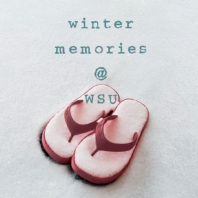
Winter 2019
Winter memories @ WSU
Alumni share their favorite wintry memories from their time at Washington State University. » More ...







The Tukey Orchard at Washington State University has provided fruit and research opportunities for a century.
Take a visual stroll among the orchard over the years.
Read more about the moving of Tukey Orchard.


